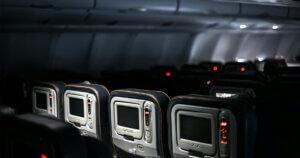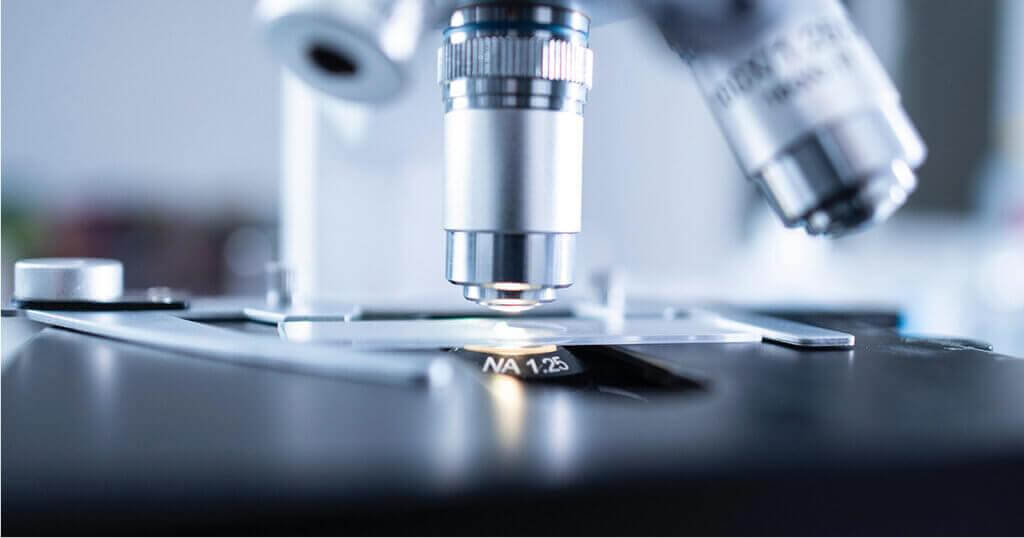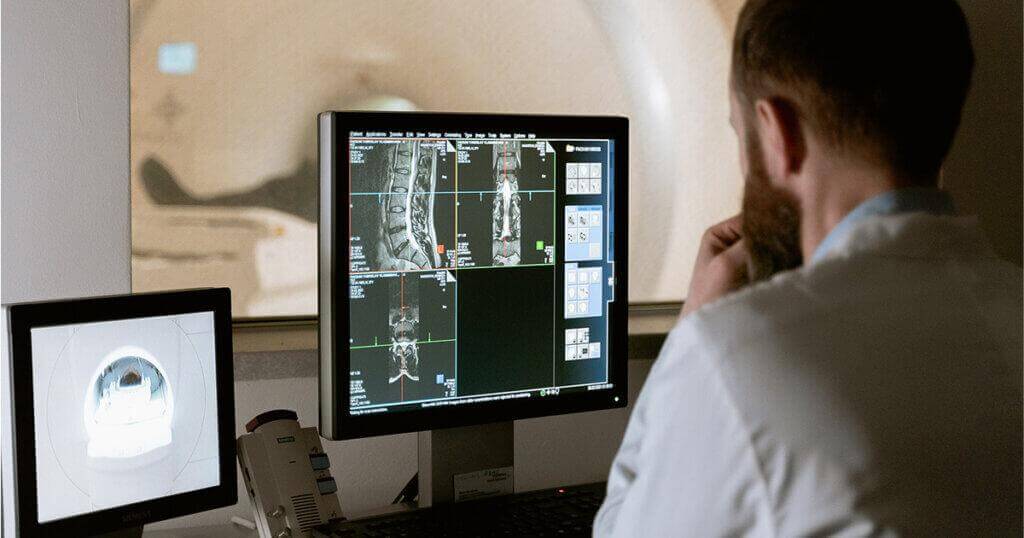
Code Blue
Code Blue in Flight Blog What is a Code Blue in aviation? Code Blue is the term used to refer to time-dependent health incidents, that is, those in which every
To become a commercial pilot, it is mandatory, and a prerequisite for obtaining a flight licence, to pass a Class 1 medical certificate, which must be procured before enrolling in any plane pilot course.
The objective of this exam is to evaluate the applicant’s psycho-physical capacity to ensure that he/she meets all necessary conditions to perform his/her tasks safely and effectively, as well as to prevent an acute incapacitation during flight or an early chronic incapacitation. Therefore, not only diseases or injuries are taken into account, but also the consequences that may result from them.
In Spain, the body responsible for granting flight licences and establishing the psychological and physical requirements necessary to obtain them is the General Agency for Civil Aviation, ensuring that future professional pilots comply with the best physical and mental conditions.
Thus, the initial medical examinations for obtaining a Class 1 medical certificate, will be carried out in an AMC (Aero Medical Center), while the revalidation and renewal exams can be delegated to an AME (authorized aero medical examiner).
This test will examine the cardiovascular, respiratory, digestive and urinary systems. Also, hematological and urine analyses shall be carried out as well as a verification of muscular and skeletal requirements along with those ophthalmological and hearing so as to ensure the applicant may perform this job in a safe way
Likewise, special attention will be paid to the psychological profile of the candidate in order to discard any personality disorders that would leave him/her out of this activity.
Before starting the specific tests, a questionnaire will be fulfilled to open the medical history and complete the information provided in the previous application form. If any disease has been reported, it is advisable to present medical reports.
In WA Flight Academy may help you to find the most suitable AMC center for your case.

Next, let’s analyze the medical requirements, according to the PART-FCL standards, to pass the Class 1 Medical Certificate necessary to obtain a pilot’s license, complying with all regulations required by the standard within the EASA European regulatory framework.
There are two exam modalities, SIMPLE and EXTENSIVE, with a different periodicity:
SIMPLE EXAMINATION: Each year < 40 years old // Every 6 months > 40 years old
EXTENSIVE EXAMINATION: Initial and every 5 years < 40 years old // Every 2 years > 40 years old.
The difference between the simple tests and those performed in an extensive way affect, basically, heart, sight and hearing checks.
When continuous tests are done on the same person, some scans can be spaced, assuming that it is not necessary to do an audiometry or a deep ophthalmic examination every 6 or 12 months, since they won’t provide relevant data.
It is more practical, efficient and scientific to establish this new test based on age and time, not to forget that a good medical judgment will indicate, or not, the convenience of applying deeper tests in each particular case, even if we were in a simple renovation. Therefore, periodicity shall be as shown in the following table:
MEDICAL TESTS | CLASS 1 PERIODICITY |
Hemoglobin | Every exam |
Electrocardiogram | <30 – every 5 years 30-39 – every 2 years 40-49 – every year >50 – every 6 months |
Audiometry | <40 – every 5 years >40 – every 2 years |
ENT extensive exam | <40 – every 5 years >40 – every 2 years |
Sight extensive exam | <40 – every 5 years >40 – every 2 years |
Lipid profile | Once 40 years old |
Pulmonary peak flow | At 30-35-40 years old >40 every 4 years |
Urine test | Every exam |
SIGHT
The requirements regarding this point are included in the Class 1 Visual Standards PART-FCL.
In the initial test, a complete ophthalmological exam will be carried out in which the applicant’s visual acuity will be determined respect of different parameters: near vision, distance vision, with glasses and without glasses, etc… Also, the Ishihara test will be performed to check that there is no color alteration. Abnormalities such as color blindness or severe myopia may result in a failure for this Class 1 certificate. Still, in the case of color blindness, you can opt for private licenses that require the Class 2 certificate with which it is possible to fly under some restrictions (only at day light and without instruments).
The use of glasses is not a problem to pass this Class 1 exam. It is possible to be a pilot wearing glasses. In the case of presenting some visual alteration of refractory type (myopia, astigmatism, presbyopia, etc…) that makes glasses necessary, each particular case will be studied since the current regulation admits a certain degree of visual alteration. If needed, the medical certificate will indicate that we must fly provided of them.
Thus, in the initial evaluation, the accepted values vary according to the refractive error. Let’s analyze the different scenarios:
Distance vision: distant visual acuity is evaluated by measuring the ability to see lines, shapes or letters on a table at a distance of 6 meters. As for the amount of dioptres allowed, the values vary depending on the refractive error. For initial exam, if correction is required, the refractive error must be between +5.00 to -6.00 diopters. In case of astigmatism, do not exceed 2.00 diopters, as for the so-called anisometry.
Close-up vision: the candidate must be able to read the N5 print at 30/50 cm, and the N14 print at 100 cm, with or without correction.
Color vision: A color vision test will be performed with the Ishihara plates (a series of numbers or shapes outlined by dots of different colors, which can easily be seen by someone with normal color vision). If this examination fails, a flashlight test will be performed, which consists of correctly identifying a series of colored lights. If this is passed, the visual aptitude for the PART-FCL Class 1 certificate will be confirmed.
Eye function: Visual axes should be normal. Double vision cannot be suffered. Any degree of eye muscle imbalance will require additional evaluation by an eye specialist. Likewise, there should be no acute or chronic diseases in the eyes or their surrounding structures.
Eye surgery: Those who have undergone eye surgery will also be examined for a satisfactory ophthalmological evaluation.
ENT – HEARING
Nose, ears, throat, and mouth will be checked and an audiometry will be done to verify that hearing is correct to fly a plane in a safe way. This test will be repeated every five years for those under 30 years, every two years until 40 to become annual passed this age. This hearing exam evaluates the ability to hear a normal conversation with each ear at a distance of 2 meters and with your back to the medical examiner (PART-MED.B.080 Otolaryngology Subparte (b) and (c)). For professional pilots an additional test called audiogram is required. This screening consists of listening to sounds at different frequencies. Perfect hearing is measured as zero hearing loss (0 decibels – 0 dB) at that particular frequency. Hearing loss is shown as a loss of decibels (10, 20, 30, 40) at a particular frequency. The required hearing levels and maximum allowable losses are as follows:
Frequency – permissible loss
500 Hz – 35 dB
1000 Hz – 35 dB
2000 Hz – 35 dB
3000 Hz – 50 dB
If you can hear a normal voice, with each ear separately, at 2 meters, you have no problem. As they advance in their careers, pilots may experience some hearing loss, often due to ambient noise suffered in an aircraft. In the case the audiogram figures show a level of 5db under those shown in the previous one, this exam will become annual.
HEART-ELECTROCARDIOGRAM TEST
This test is taken every five years until the age of 30. From 30 to 40 it will be every two years, to become annual once 41. It analyzes the heart rate to detect any abnormalities that, due to pressure changes occurring in an airplane, may incapacitate the applicant. In the unlikely event that any alteration appears, additional tests with a report from a cardiologist should be performed. People with a heart or lung transplant, by-pass, vascular alterations or aneurysm would not be considered apt for medical certification, either Class I (professional pilots) or Class II (private pilot).
PULMONARY FUNCTION TEST (SPIROMETRY)
A spirometry will be done to check that lungs don’t have any abnormal condition. Since flight activity is carried out in the upper atmosphere, and although aircraft cockpits artificially maintain an atmospheric pressure higher than that in the outside and similar to that at lower altitudes, it is essential that the pilot does not present abnormalities in his/her breathing system. Candidates with lung problems or breathing difficulties may not apply. Some conditions, such as asthma, require more specific tests to assess the severity of such failure in each specific case.
DIGESTIVE TRACT TEST
Stomach problems, or related diseases, may cause the medical certificate to be denied. This certificate must prove that the applicant does not suffer from any disabling hernia, as well as any chronic intestinal disease.
BONE AND MUSCLE TEST – Posturometry
This test measures the static posture and balance, with eyes open and closed. Although it is not required to have a specific physique, those pilots aimed to the Air Forces must comply with some minimum requirements of height and length of arms and legs. This is due to the cabin dimensions of combat planes which are quite small and, in an emergency, the pilot’s body must not obstruct the aircraft’s ejection system as there is a risk of serious injuries to the limbs or head.
Blood test
A blood test will be done to discard any infection or disease. Low hemoglobin, commonly called anemia, will need further analysis to find its origin, causing the certificate to be temporarily denied. Also, different parameters such as blood’s ability to carry oxygen or cholesterol level will be evaluated. A high cholesterol level is not cause of disqualification, but there is a need to report the possible risks of having it high.

Chest X-ray
This test is not required under PART-FCL Class 1, but may be necessary when indicated for previous or detected clinical reasons.
Urine test
Mainly looking for sugar (diabetes), protein or blood. Also, to detect a possible pregnancy that, without being disabling, it limits the time to remain active. This urine test also seeks to exclude any kidney condition, as well as to check that there are no traces of narcotic substances that can affect the applicant’s cognitive abilities.
Psichologycal tests
This section will examine the candidate to verify there is no psychological or neurological alteration that prevents him/her from developing its activity safely. Nervous system disorders such as epilepsy will cause a “not apt”. Likewise, psychic pathology diseases, acute or chronic, as well as a history of depression, bipolarity, personality disorders or self-harm, will be grounds for certificate refusal. Therefore, through tests such as the Hamilton Anxiety Scale or the Goldberg Questionnaire of bipolar disorder, the specialist should certify there is no neurotic disorder, of personality, mood or behaviour as well as disorders related to the consumption of alcohol or narcotic substances that lead to a “no apt”.
The initial medical examination will conclude with a final evaluation. All the information provided by the tests carried out in accordance with the regulations, will serve the aero doctor in charge to determine whether the applicant complies with all requirements to obtain the Class 1 medical certificate.
A Class 1 medical certificate issued by an EASA Member State shall be automatically accepted by any other EASA Member State and recognised throughout its operational framework.
The civil aviation authorities of certain European states made an agreement on common aviation requirements, which called “Joint Aviation Requirements”, better known by its acronym JAR (Joint Aviation Requirements). Within the JAR-OPS (Operations Area), the JAR-FCL section (Flight Crew License) regulates and harmonizes medical requirements through the so-called JAR-FCL3, or more familiarly as Medical JAR.

Not complying with some of the requirements does not necessarily mean disqualification. There is a flexibility clause whereby the candidate can be certified as long as the anomaly does not interfere with the operation safety.
When a Class 1 medical certificate is denied, it is important to distinguish between a definitive “not fit” and a temporary one. A cardiac injury, epilepsy, colour blindness or personality disorders shall be a cause of definitive denial. However, a high cholesterol rate, anemia or any other reversible ailment will result in a temporary “not fit”, that can be reversed as soon as the situation that caused it ceases and the relevant tests are performed again. An early diagnosis of any disorder increases the chances of recovery and, therefore, return to fly.
In any case, the pilot must stop working as soon as he/she becomes aware of a decrease in his/her capabilities that may endanger flight safety.
The price of the initial class 1 medical certificate is about 400€, falling to 130€ for renewals.
For a more detailed description of medical requirements for flight crew licenses, see Annex IV – Part MED to Regulation 1178/2011 (EU).
Our pilot school works for the professional excellence of each student.
We are accompanied by instructors with more than 20 years of experience and state-of-the-art aircraft.
We offer:
Helicopter Pilot Courses
Aeroplane Pilot Courses
Drone Pilot Courses
Flying Experiences

Code Blue in Flight Blog What is a Code Blue in aviation? Code Blue is the term used to refer to time-dependent health incidents, that is, those in which every

Discover how this ground effect is generated in aircraft and how to control it on a flight if you are a pilot. Learn how to avoid the well-known balloon effect.
You will be up to date with the news at World Aviation Group.